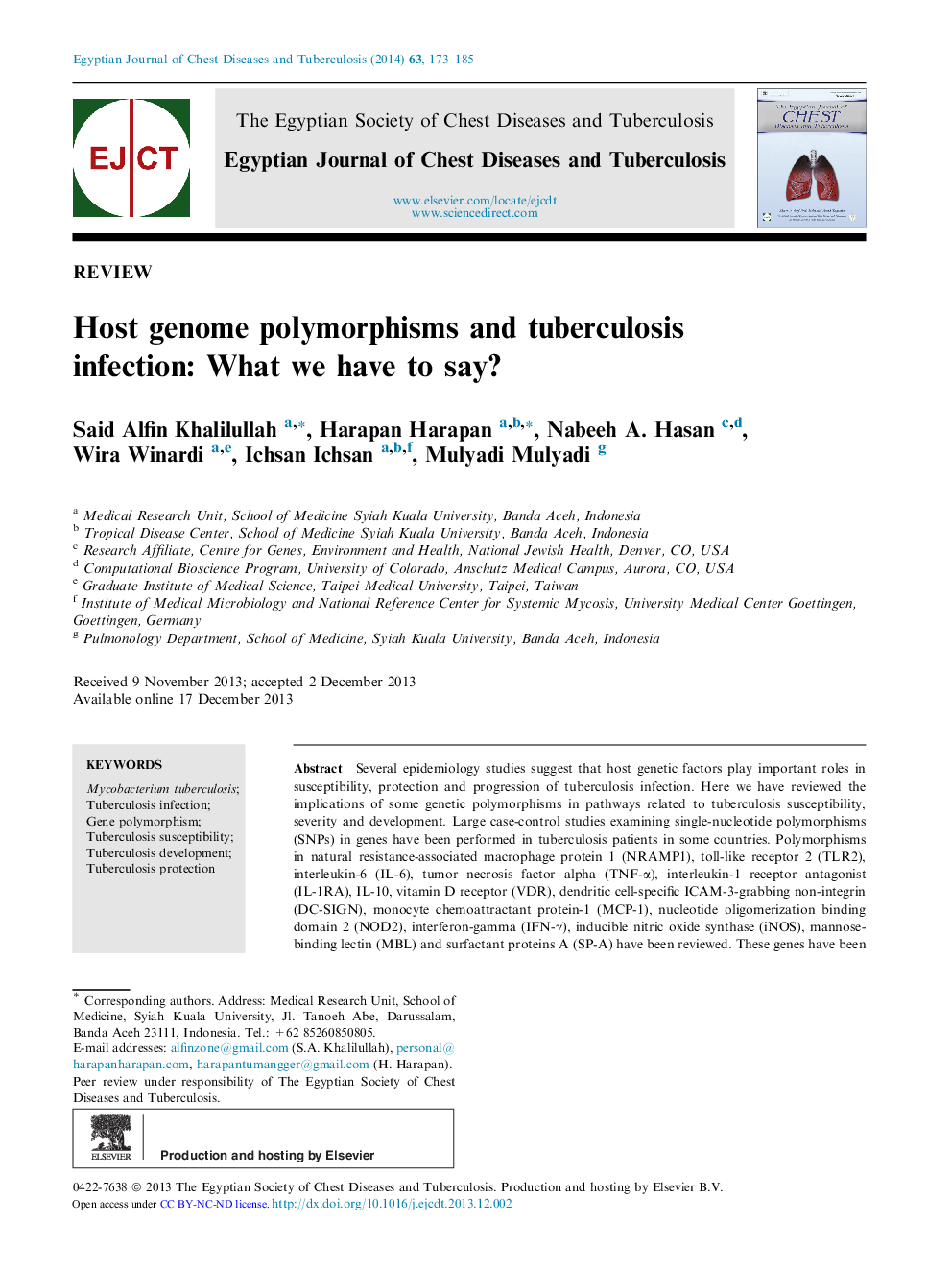| Article ID | Journal | Published Year | Pages | File Type |
|---|---|---|---|---|
| 3400152 | Egyptian Journal of Chest Diseases and Tuberculosis | 2014 | 13 Pages |
Several epidemiology studies suggest that host genetic factors play important roles in susceptibility, protection and progression of tuberculosis infection. Here we have reviewed the implications of some genetic polymorphisms in pathways related to tuberculosis susceptibility, severity and development. Large case-control studies examining single-nucleotide polymorphisms (SNPs) in genes have been performed in tuberculosis patients in some countries. Polymorphisms in natural resistance-associated macrophage protein 1 (NRAMP1), toll-like receptor 2 (TLR2), interleukin-6 (IL-6), tumor necrosis factor alpha (TNF-α), interleukin-1 receptor antagonist (IL-1RA), IL-10, vitamin D receptor (VDR), dendritic cell-specific ICAM-3-grabbing non-integrin (DC-SIGN), monocyte chemoattractant protein-1 (MCP-1), nucleotide oligomerization binding domain 2 (NOD2), interferon-gamma (IFN-γ), inducible nitric oxide synthase (iNOS), mannose-binding lectin (MBL) and surfactant proteins A (SP-A) have been reviewed. These genes have been variably associated with tuberculosis infection and there is strong evidence indicating that host genetic factors play critical roles in tuberculosis susceptibility, severity and development.
